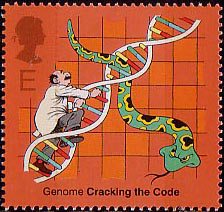In March 2013, a group of non-governmental organisations filed a lawsuit at the Court of Justice of the European Union against an EU Commission decision allowing the use of Monsanto´s genetically engineered soybeans, Intacta, in food and feed (T-177/13-5). The complainants maintain that EFSA has not carried out the risk assessments for the genetically engineered soybean as legally required. Now Monsanto, the British Government, the European Food Safety Authority (EFSA) are all joining forces in court to defend the right to import the transgenic soybeans. Intacta is a transgenic soybean similar to the controversial genetically engineered maize SmartStax. It produces an insecticide and is resistant to glyphosate herbicides (such as Roundup). Owned by Monsanto, it was authorised by the EU Commission for import and usage in food and feed in 2012. The lawsuit against this EU decision was filed by three non-profit-organisations, the European Network of Scientists for Social and Environmental Responsibility (ENSSER), Sambucus and Testbiotech. The complainants have the suppport of the Society for Ecological Research, the foundation Manfred-Hermsen-Stiftung for Nature Conservation and Environmental Protection, the Foundation on Future Farming and the German Family Farmers Association (ABL).
“It looks like this coalition of industry, authorities and politicians is aiming to discourage civil society from fighting for its rights in court. But we are not afraid”, says Annemarie Volling from the German Family Farmers Organisation. “For us this is not a power game, we are simple defending the basic rights of farmers and consumers.”
An initial reaction of the EU Commission to the arguments of the civil society groups has already been filed. However, the complainants regard the arguments of the Commission as unconvincing from both a legal and scientific point of view. Currently they are expecting more written pleas from the opposing parties, which might cause substantial rise in procedural costs.
“In general, soybeans are amongst those crops that have the highest potential to cause allergies. It is known that the insecticide produced by the transgenic plants can even cause immune reactions. Consequently, this means a higher risk to human health. And here are further risks in the interaction of the residues from spraying with herbicides and the insecticide as produced in the plants,” says Christoph Then for Testbiotech. “Despite those risks EFSA did not even request feeding studies to investigate health effects.” Testbiotech is the organisation coordinating the lawsuit and is now asking for public to support it.
Contact:
Testbiotech: Christoph Then, info@testbiotech.org, Tel +49 15154638040, www.testbiotech.org
ENSSER: www.ensser.org
Foundation on Future Farming: www.zs-l.de
Manfred-Hermsen-Stiftung: www.m-h-s.org
Sambucus: www.sambucus.org
Society for Ecological Research: www.oekologische-forschung.de
German Family Farmers Association (ABL): www.abl-ev.de
Source: Testbiotech, 25 September 2013
http://www.testbiotech.de/en/node/898

- Log in to post comments

John Vidal's swansong
John Vidal environment editor for The Guardian in his final piece before retiring described what happened in 1997 when Alan Rusbridger became the new editor. “Representatives from the old American chemical company, which had a dark history of making Agent Orange and polychlorinated biphenyls (PCBs), came to the Guardian offices in 1997 claiming that Monsanto was the leader of the new “biological” age, having re-invented itself as a global seed company and world saviour. Five directors sat down in new editor Alan Rusbridger’s office, and within minutes were literally thumping the table, saying that we had misunderstood their intention to feed the world with GM food.” But we understood very well at that moment that GM farming was not just about science, genes and the promise of greater yields, but also about the intensification of power, the control of food and the gigantic profits that all large corporations could make at the expense of nature. True to form, the British government sided with Monsanto.